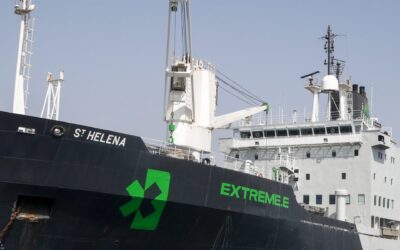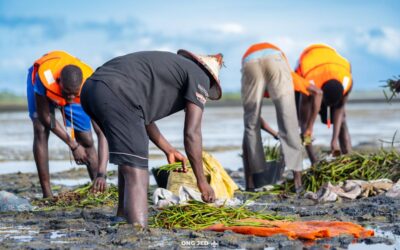Last week, the Bonn Climate Change Conference wrapped up after two weeks of intensive work, setting the stage for the upcoming COP29 in Baku, Azerbaijan. Among the key achievements, significant strides were made in enhancing International Carbon Markets under Article 6. Delegates focused on critical aspects such as carbon credit authorization and the international carbon market registry. Constructive discussions clarified positions on Articles 6.2 and 6.4, with plans for further workshops to ensure comprehensive technical progress before COP29.
With the conclusion of the Bonn Climate Change Conference and the anticipation of a new COP, we at ALLCOT IO wanted to reflect on our participation in last year’s COP and share our expectations for the upcoming year. These progressions and commitments towards Article 6 ahead of the new COP invite us and other entities in the industry to review how we contributed to last year’s COP and consider how we can continue to support and enhance our efforts this year.
The 28th Conference of the Parties (COP28) marked a significant milestone for ALLCOT IO as our delegation took center stage to address pressing climate change issues. Represented by Raphaël de Ry, Co-Founder and CEO, and Francisca Garay, COO, ALLCOT IO’s mission at COP28 was to showcase our vision: a more transparent, accountable, and impactful climate finance ecosystem. Under this context, we had the opportunity to host two pivotal panel discussions at the Dominican Republic Pavilion, highlighting our commitment to transparency and innovation in climate finance.
One of these panels was “Opening the Books – Pioneering Transparency in Climate Finance with Digital Tools,” which showcased our key  initiative with the HBAR Foundation. Supported by this partnership, our commitment is to lead the way by ‘Opening the Books on Climate Markets.’ This groundbreaking initiative spans the entire origination and lifecycle of a climate project, engaging key stakeholders across the carbon ecosystem—from standards and registries to validation and verification entities, and financial institutions. It supports benefit-sharing mechanisms with new measures of financial equity in support of a just transition. The discussion underscored the importance of disclosing financial data to enhance transparency, build stakeholder trust, and promote financial equity in climate initiatives. The vital interplay between digital tools and climate finance, with a spotlight on transparency and accountability, can foster trust and engagement among stakeholders, optimize resource allocation, and promote cooperation. This aligns with our collective vision for global climate objectives.
initiative with the HBAR Foundation. Supported by this partnership, our commitment is to lead the way by ‘Opening the Books on Climate Markets.’ This groundbreaking initiative spans the entire origination and lifecycle of a climate project, engaging key stakeholders across the carbon ecosystem—from standards and registries to validation and verification entities, and financial institutions. It supports benefit-sharing mechanisms with new measures of financial equity in support of a just transition. The discussion underscored the importance of disclosing financial data to enhance transparency, build stakeholder trust, and promote financial equity in climate initiatives. The vital interplay between digital tools and climate finance, with a spotlight on transparency and accountability, can foster trust and engagement among stakeholders, optimize resource allocation, and promote cooperation. This aligns with our collective vision for global climate objectives.
The second panel was “Creating a National Digital Framework for Carbon Project Development,” which focused on the need for developingeffective and scalable carbon projects. We explored the concept, benefits, and challenges of creating a nationally coordinated digital framework for carbon project development. By leveraging digital technologies and national coordination, the panelists aimed to streamline the lifecycle of carbon projects from inception to validation, enhancing monitoring and reporting capabilities. The discussion mainly focused on the role of digital tools in improving transparency and accountability, sharing best practices, and case studies. This panel demonstrated the key role of collaboration among experts, policymakers, and industry leaders in aligning these frameworks with global climate goals.





 Moderated by Raphaël De Ry, CEO of ALLCOT IO, the panel also delved into the policy implications of national digital frameworks and their alignment with international agreements such as the Paris Agreement and Sustainable Development Goals. The discussion highlighted the potential of digital frameworks to revolutionize climate finance, promote stakeholder trust, and ensure efficient resource allocation. By exploring the integration of innovative technologies like remote sensing, IoTs, and blockchain, the panel demonstrated how digital frameworks can enhance the development and monitoring of carbon projects, ultimately contributing to a more sustainable and resilient future.
Moderated by Raphaël De Ry, CEO of ALLCOT IO, the panel also delved into the policy implications of national digital frameworks and their alignment with international agreements such as the Paris Agreement and Sustainable Development Goals. The discussion highlighted the potential of digital frameworks to revolutionize climate finance, promote stakeholder trust, and ensure efficient resource allocation. By exploring the integration of innovative technologies like remote sensing, IoTs, and blockchain, the panel demonstrated how digital frameworks can enhance the development and monitoring of carbon projects, ultimately contributing to a more sustainable and resilient future.
In addition to these panels, our delegates participated as guest panelists in multiple side events, discussing biodiversity credits, adaptation strategies, and digital innovation in carbon markets. We also engaged in corporate side events hosted by renowned organizations like Gold Standard, Verra, Blockchain x Climate, IETA, and Women and Climate.
All these experiences have set the stage for 2024, allowing us to harness this wave of ideas and discussions to work on key points during the first half of the year and prepare for the second half. We are proud to announce our participation in London Climate Week 2024, NYC Climate Week 2024, and once again at COP29 in Azerbaijan. This time, we will be able to share more specific insights into how ALLCOT IO, in collaboration with the HBAR Foundation, is developing cutting-edge digital innovations in community-driven carbon projects, emphasizing transparency, efficiency, and equitable income distribution.
Reflecting on the progress made in Bonn, we eagerly anticipate participating in another COP, where we will unveil even more technology and innovation contributing to Climate Action. Our primary mission remains firm: developing cutting-edge digital innovations in community-driven carbon projects, emphasizing transparency, efficiency, and equitable income distribution.




